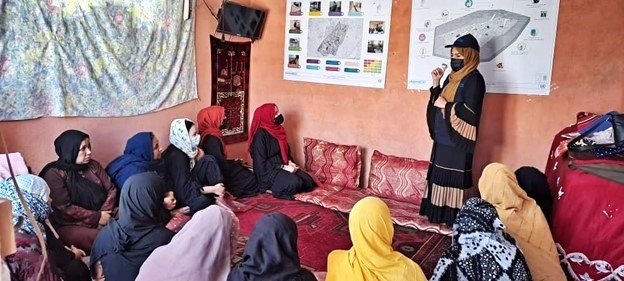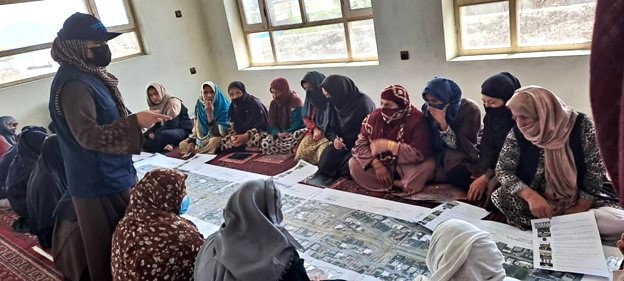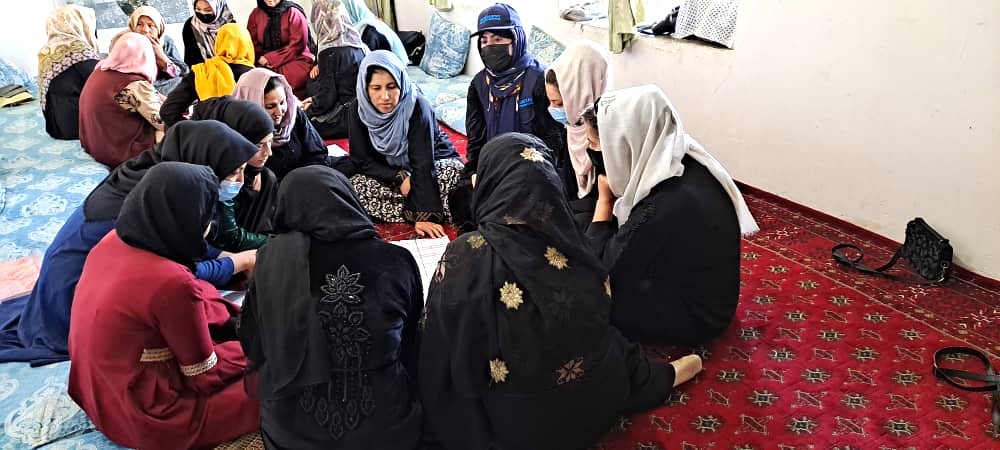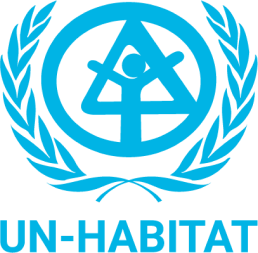“Afghan women hold the potential to shape a brighter future in this country. My role is to make sure their voices are heard in community dialogues and help them unlock their potential in community development.”
In today’s Afghanistan, where women’s education and socioeconomic activities have been restricted by the de facto authorities since the government takeover in August 2021, Fatima is one of the Afghan women defying societal norms and adversities.
She works as a Community Mobiliser for the UN-Habitat project: “Emergency Support Programme for Conflict-Displaced Afghans” funded by the Government of Japan. This project aims to provide lifesaving services and essential community infrastructure to meet the immediate needs of 50,000 internally displaced people (IDPs) and returnees residing in urban informal settlements in the cities of Kabul and Herat, with a specific focus on the needs of women. “Being voiceless makes Afghan women more invisible and powerless,” Fatima believes. She sees women as having a critically important role in improving Afghan communities. Despite various challenges, she is committed to becoming a role model for other vulnerable women in these communities through the project.

Fatima’s childhood, like that of many other Afghan girls, was far from easy. Her parents were farmers, and when she was a young girl, her family faced financial hardships that posed challenges for her education. Despite the odds stacked against her, she continued to attend school and successfully graduated from the 12th grade.
She had a passion for learning and was enthusiastic about teaching others. She became a teacher, dedicating half of her day to educating young Afghan girls at a local public primary school and the other half to her own studies in mathematics and physics.
Her commitment to education was not without its challenges. In Afghan society, women’s education and employment were not readily embraced. This led Fatima to leave her hometown and seek better opportunities in urban Kabul. However, her journey in the capital was marked by even greater hardships, including unemployment and homelessness. Nevertheless, she remained steadfast in her pursuit of a better future for herself and her family.
A significant turning point in Fatima’s life occurred when she secured a position with an Afghan NGO. While working as a Trainer of Trainers (ToT) for its programmes, she continued her education by pursuing a bachelor’s degree in economics at a university in Kabul. Balancing study time with work was a genuine challenge, but she did not give up.
Fatima’s journey continued as she transitioned from one organization to another, gaining more work experience along the way while being a loving mother to her three children. Her dedication to her work eventually led to the opportunity to serve as a Community Mobiliser under the Japan-funded project. Her role as a Community Mobiliser involved various activities aimed at engaging communities in a challenging social environment. In the face of societal constraints, her work was pivotal in ensuring that women’s voices were heard and their needs were addressed. Throughout the project’s implementation, she undertook tasks such as engaging with key local stakeholders to garner support, organizing workshops to identify community issues and action plans, and selecting the most vulnerable women for Cash-for-Work (CfW) initiatives.

During her work,Fatima encountered many challenges. Each community member had their own unique needs and priorities that did not always align with one another. Some women in focus group discussions were not accustomed to voicing their opinions in a participatory process. Encouraging the acceptance of women as a workforce in infrastructure projects was not an easy task in a male-dominated society. Overcoming the fear within communities regarding the de facto authorities and women’s involvement in these activities proved to be one of the most challenging obstacles. Nevertheless, she remained dedicated to supporting and engaging in dialogues with women while closely coordinating with local authorities.
Despite these hurdles, Fatima never gave up. She persisted in her efforts to empower women in the communities and played a pivotal role in making women an integral part of the project’s consensus-building processes. Her dedication and passion have been instrumental in transforming the communities and providing opportunities for women to have their voices heard.
Her efforts were consistently supported by Khalil, the other male Community Mobiliser in the project team. Just as Fatima advocated for women, he tirelessly engaged with men in the communities, emphasizing the importance of the workshops. “I am truly thankful for his unwavering support, as he always waited for me until the female workshops concluded and accompanied me back home,” said Fatima.
Fatima’s journey, from a struggling young girl to a Community Mobiliser, serves as an inspiration to other Afghan women in the communities she has been working for. Her work under the Japan-funded project has not only improved the lives of many vulnerable individuals but has also given Afghan women a platform for their voices to be heard.
“Women’s participation matters when we vote for priorities in our communities.” “We have acquired new skills through capacity-building workshops. Now we know how to monitor project activities by ourselves.” Every time Fatima hears such words from female community members, she is deeply pleased and takes pride in being a Community Mobiliser for UN-Habitat. Fatima’s story showcases the power of determination, education, and resilience, and her commitment to women’s empowerment will leave a lasting impact on the communities for generations.

*The name Fatima has been changed to protect her.


